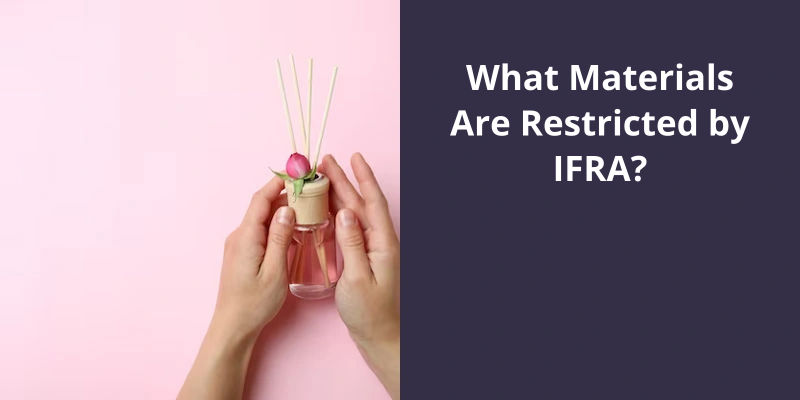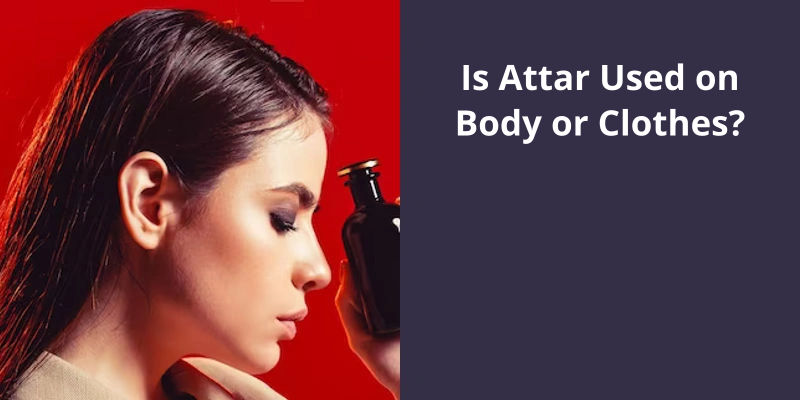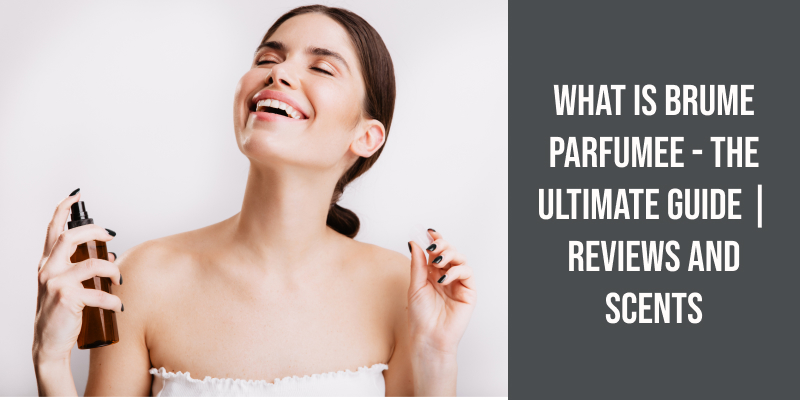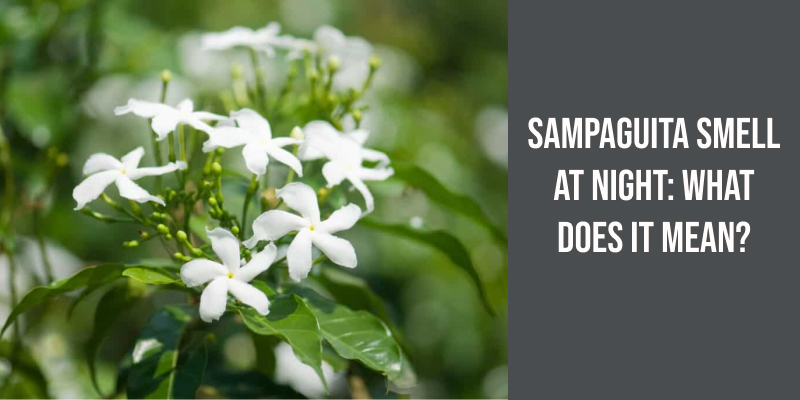The International Fragrance Association (IFRA) restricts various materials to ensure safety in the fragrance industry. These restrictions can range from completely banning certain substances to limiting the concentration levels of others. Examples of restricted substances include allergenic substances such as natural ingredients like oak moss and tree moss, certain essential oils such as coumarin, and synthetic materials like Lyral. These limitations are based on scientific data and are updated as new information becomes available, with the aim of protecting consumers and the environment from potential harm.

What Is the Purpose of IFRA?
In addition to ensuring safety, IFRA also aims to promote responsible and transparent practices within the fragrance industry. This includes advocating for ethical and sustainable sourcing of fragrance materials, as well as promoting honesty in fragrance labeling and marketing. The organization also provides guidance and support to it’s members in complying with global regulations and standards.
It’s education and training programs aim to promote expertise and innovation within the sector, while also ensuring compliance with safety standards and regulations. The organization also actively engages with researchers, scientists, and regulators globally, in order to drive ongoing research and collaboration in fragrance safety and sustainability.
The organization works with media, consumer groups, and other stakeholders to provide accurate and accessible information about fragrance safety, as well as the steps being taken by the industry to promote sustainability and responsibility. This includes initiatives to increase transparency and disclosure around fragrance ingredients and to promote sustainability in the sourcing and production of key materials.
The History and Evolution of IFRA: Tracing the Development of the Organization and It’s Impact on the Fragrance Industry Over Time.
- IFRA was founded in 1973 in Geneva, Switzerland
- The organization was established to promote the safe use of fragrances and to ensure their continued availability
- IFRA has developed a code of practice for the fragrance industry, which sets out guidelines for the safe use of ingredients in fragrance products
- The code of practice is regularly updated to reflect new scientific research and developments in the fragrance industry
- IFRA works closely with regulatory authorities around the world to ensure that fragrance products are safe for use
- The organization also provides technical support and advice to it’s members to help them comply with the code of practice
- Over the years, IFRA’s role has expanded to include issues such as sustainability and ethical sourcing of fragrance ingredients
- IFRA’s members include fragrance manufacturers, raw material suppliers, and other companies involved in the fragrance industry
- The organization has a global reach, with members in Europe, North America, Asia, and other regions
- Overall, IFRA has played a significant role in promoting the safe use of fragrances and ensuring their continued availability over the past several decades
Furthermore, synthetic fragrances often contain harmful chemicals that can lead to negative health consequences. IFRA certified fragrances, on the other hand, have been rigorously tested and vetted to ensure they meet strict safety and sustainability standards. In this way, businesses can provide high-quality fragrances while also prioritizing the health and wellness of their customers. But what does it mean for a fragrance to be IFRA certified and how can consumers distinguish between these fragrances and others on the market? Let’s explore the answers to these questions.
What Is IFRA Certified Fragrance?
In contrast, IFRA certified fragrances are composed of synthetic ingredients that are carefully checked and measured to ensure that they’re safe for use.
The certification process evaluates how the fragrance interacts with other common ingredients, such as preservatives and surfactants, to ensure that it doesn’t cause any adverse reactions.
This means that IFRA certified fragrances last longer and maintain their scent profile more consistently than natural fragrances.
By evaluating the impact of each ingredient on the environment, the certification process helps to promote sustainable sourcing and production methods.
Finally, IFRA certification provides peace of mind for consumers who’re concerned about the safety and quality of the products they use.
It’s important to note that IFRA fragrance guidelines exist to ensure the safety of consumers and are based on extensive research and testing. The percentage of fragrance oil used in a product should correspond to it’s IFRA safety rate, and it’s crucial to avoid using fragrances with a safety rate below 5%. Let’s dive deeper into the world of fragrance guidelines and how they impact soap making.
What Are the Guidelines for IFRA Fragrance?
These low IFRA safety rate fragrances could be potentially dangerous when used in certain products.
IFRA stands for International Fragrance Association, which is an organization that was established in 1973 to regulate the fragrance industry. The guidelines also consider the method of application, i.e whether the product is a leave-on or rinse-off product.
The IFRA guidelines are based on comprehensive scientific research and are frequently updated to reflect the latest findings. The IFRA sets strict standards for issues such as skin sensitization, photo-toxicity, mutagenicity, and other hazards that may result from fragrance use. These guidelines are meant to protect consumers from any potential negative reaction to a fragrance.
It’s crucial to be aware of the IFRA guidelines when using fragrance oils in soap making, candle making, and other craft products. Some essential oils may also have low IFRA safety rates and should be used with caution. It’s important to thoroughly research and understand the intended use of any fragrance before incorporating it into a product.
What Are Some Common Fragrance Ingredients That Have Been Banned or Restricted by IFRA Guidelines?
- Benzene
- Chloroform
- Hydroquinone
- Methylene chloride
- Trichloroethylene
- Polycyclic musks
- Phtalates
- Eugenol
Conclusion
The organization's thorough scientific research and evaluation process ensures that any restricted materials have been determined to pose potential risks or harmful effects. As the industry continues to evolve, it’s important for manufacturers and retailers to adhere to IFRA's standards and guidelines to ensure the quality and safety of their products.





